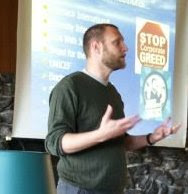More Personal
I don't want to be self-centered or egotistical, but at the same time, isn't it an honest encounter with scripture to sometimes have the feeling it is speaking directly to you?
Recently, I accepted an administrative role in my church of increased responsibility - the most responsibility I've had in my life to this point. And I can't shake the sense that I am in so many ways not up to the task. (I'm not a complete boob, of course, and there are things I bring to the role that are advantageous. But still....) I am so young, so inexperienced.
I want to say with Jeremiah: "I am just a boy!" I don't know how to speak, what to say, how to administer such a large jurisdiction, how to guide ministers many years my senior, how to grow your church.
But God doesn't let me get away with that kind of thinking. God says to me: you will go to whom I send you. You will speak what I command you. Don't be afraid. I have appointed you (and this is the first scary part) over nations and over kingdoms, (this is the second scary part) to pluck up and pull down... to build and plant.
The job is mine, but the work is God's. In some ways, I am freed even as I assume greater responsibility. I feel the weight, but God doesn't let me get a big head about myself and let me go on thinking that I'm bearing the weight, or that the weight is my burden. I am engaged in a work that is greater than myself, and if I'm honest about that, then there's less reason to be scared.
Yes, I am just a human being. But I am not less than that. My inability or youth or inexperience is no excuse - God's job qualifications more than make up for my inadequacies, and there is work to be done.
Work to be done.
Labels: Jeremiah, More Personal


